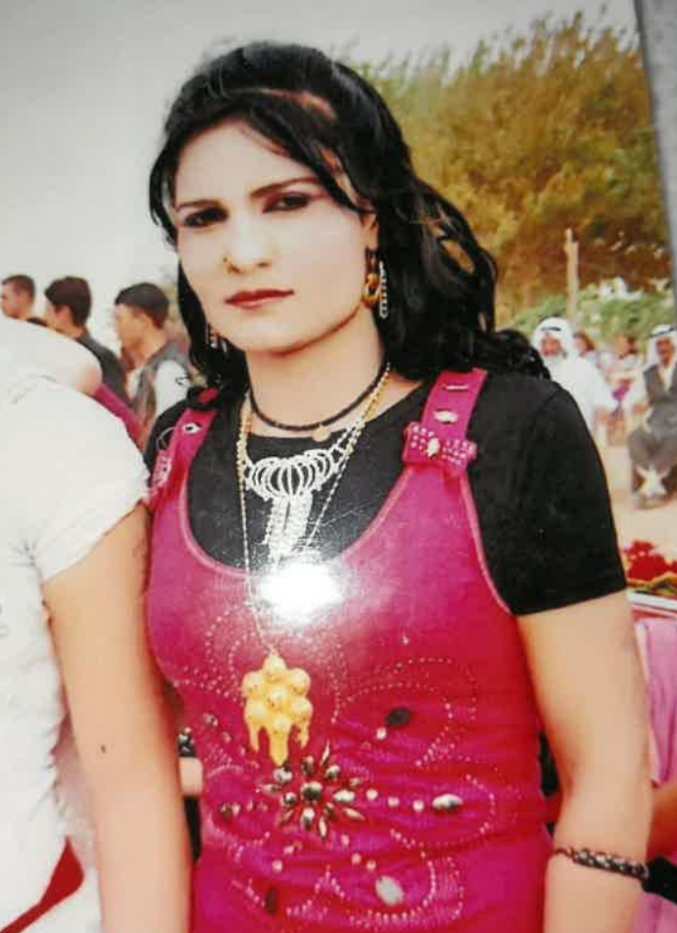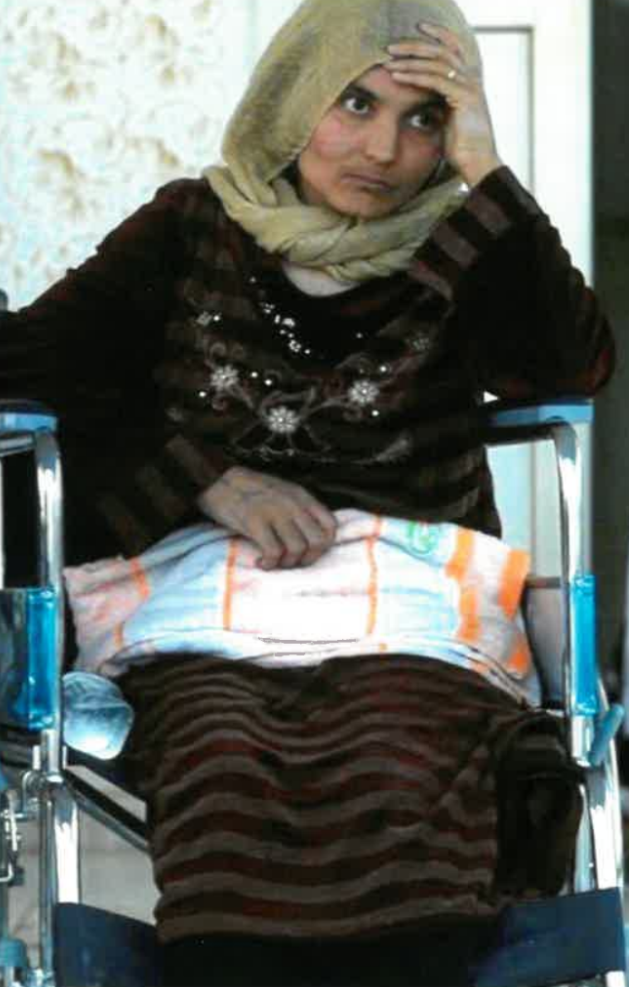Success Story: Shireen’s Green Card
Pictured above: (Left to right) Translator Khalaf Hesso, Yazidi refugee Shireen Jardo Alhanto, CLIA Executive Director Mary Choate.
Photo credit: Charles Haacker
Helping a Yazidi Survivor Rebuild Her Life
For Shireen Jardo Alhanto, a Yazidi genocide survivor, Lincoln has become a place of refuge, thanks in large part to the work of the Center for Legal Immigration Assistance (CLIA). As a nonprofit, we helped her navigate the complex U.S. immigration system, filing her asylum application, securing her work permit, and assisting with her green card — all while offering much of this support pro bono.
In August 2014, Shireen’s village in Iraq was attacked by ISIS. She was enslaved and tortured before managing to escape. After years in refugee camps, she arrived in Lincoln in 2017 with the support of Yazda and the Yazidi Cultural Center. While she found safety in Nebraska, the challenges of resettlement were daunting.
CLIA stepped in to help.
“Shireen’s case was one of my first asylum cases,” says Mary Choate, Executive Director of CLIA. “Her resilience and determination have been remarkable. Due to COVID delays, she waited seven long years for her asylum to be approved, and during that time, she focused on building her life here and helping her family back in Iraq.”
Shireen’s asylum was granted in June 2024. In September, CLIA helped her apply for her green card, which will allow her to take the next steps toward U.S. citizenship and reunite with family members still in refugee camps.
Pictured above: Shireen’s family members who are still in refugee camps or whose whereabouts are unknown.
Filling a Crucial Need
Shireen’s story is one of many that CLIA has shepherded through Nebraska’s immigration system. We provide legal services to immigrants and refugees, often free of charge, helping clients secure asylum, work permits, green cards, and citizenship.
The need for these services is growing. Nebraska’s workforce relies heavily on immigrant labor, particularly in industries like agriculture, manufacturing, and healthcare. Yet the immigration process can be prohibitively expensive and complex, leaving many unable to secure legal status without assistance.
“Nebraska has a workforce shortage that cannot be solved without immigrants,” Choate explains. “At the same time, the incoming White House administration’s proposed immigration policies threaten mass deportations, travel bans, and detentions. This is a critical moment for us to step up and protect vulnerable people who also keep Nebraska’s economy running.”
Supporting Survivors
For Shireen, CLIA’s work has been life-changing. Our team filed her asylum application in 2017, helped her secure a work permit so she could find employment, and assisted her with her green card application. All of this was done with sensitivity to the trauma she has endured.
“She’s not just surviving — she’s thriving,” Choate says. “Shireen works two jobs, takes English classes, and continues to advocate for her family and the Yazidi community.”
Shireen’s resilience shines through. She works at Smithfield Foods during the week and as a line cook at Panda Express on weekends. She also speaks publicly about the Yazidi genocide, including as the keynote speaker at the 8th anniversary of the Yazidi genocide in Malcolm, Nebraska, in 2022.
Yet her focus remains on her family. Her parents and several siblings are still in refugee camps in Iraq, where conditions are dire. She dreams of reuniting with them but knows the process will take years, even after she becomes a U.S. citizen.
Pictured above: Shireen before the ISIS attack.
Pictured above: Shireen after her release from ISIS captivity.
Where To Go from Here
CLIA’s work highlights the intersection of humanitarian need and Nebraska’s economic realities. Immigrants make up a significant portion of the state’s labor force, but systemic delays and barriers in immigration policies hinder their ability to contribute fully.
“Nebraska’s future depends on immigrants,” Choate says. “They bring vitality, resilience, and diversity. But we need to fix the system to make it faster, fairer, and more accessible.”
Programs like Welcome Corps, which allows private groups to sponsor refugees, offer one pathway forward. But Choate believes broader systemic reform is necessary to reduce wait times and address workforce shortages.
“Immigration is about survival for many people, but it’s also about survival for our communities,” she says.
As Shireen continues her journey toward citizenship, her story is a testament to the importance of organizations like CLIA — and the role of immigrants in shaping Nebraska’s future.
For more stories on CLIA’s impact, visit www.clianeb.org/reports.




